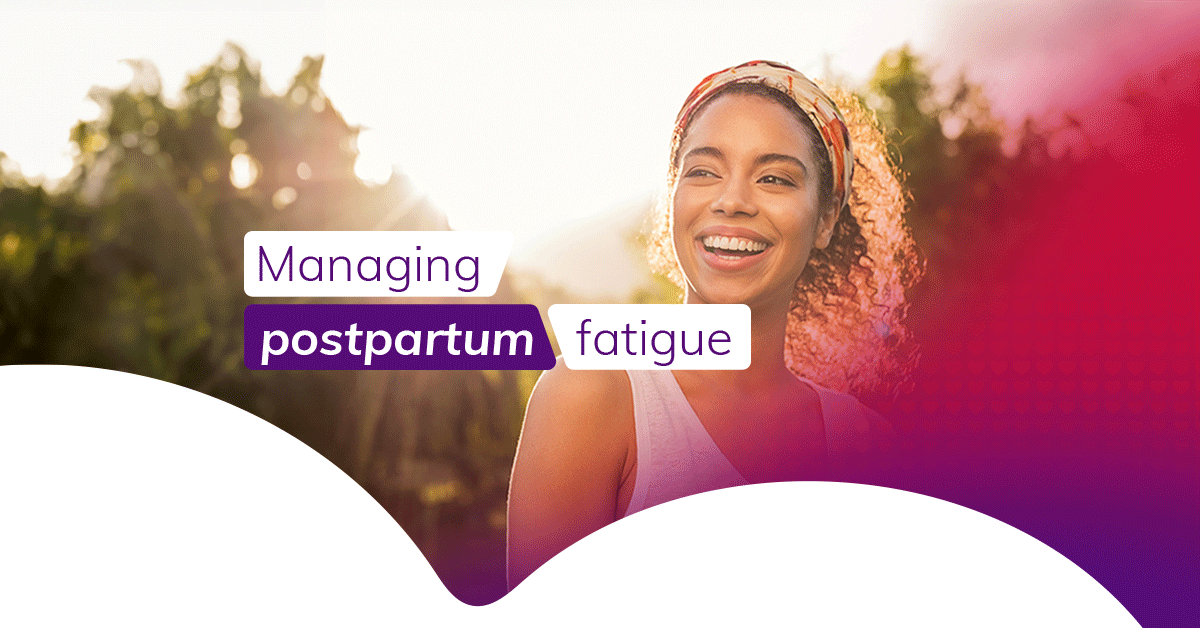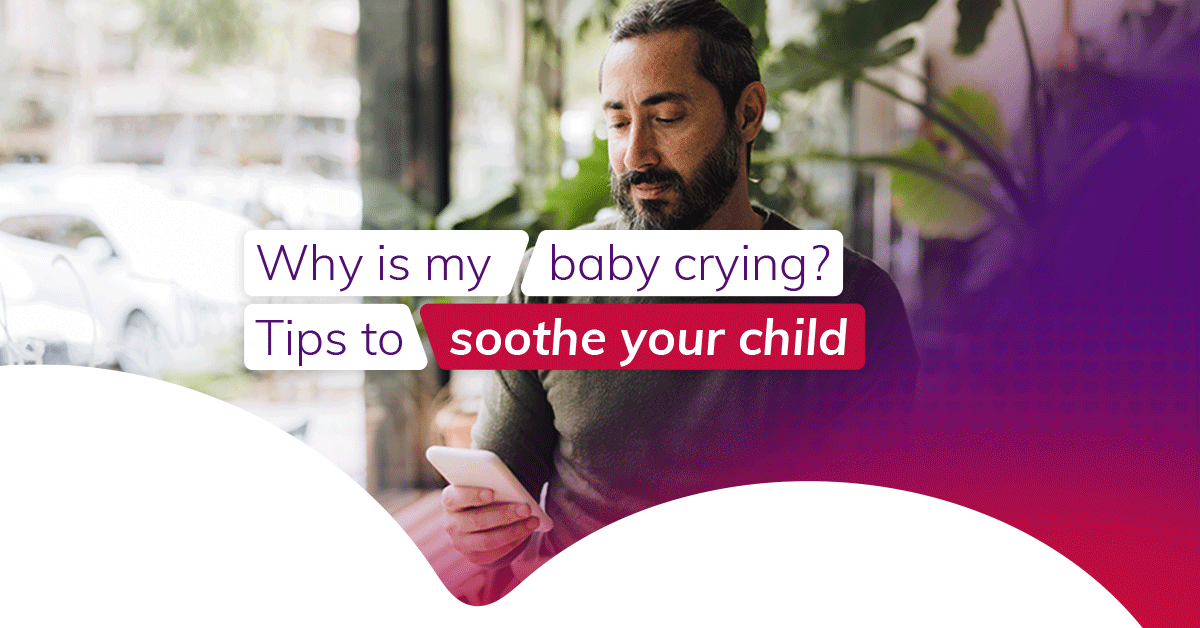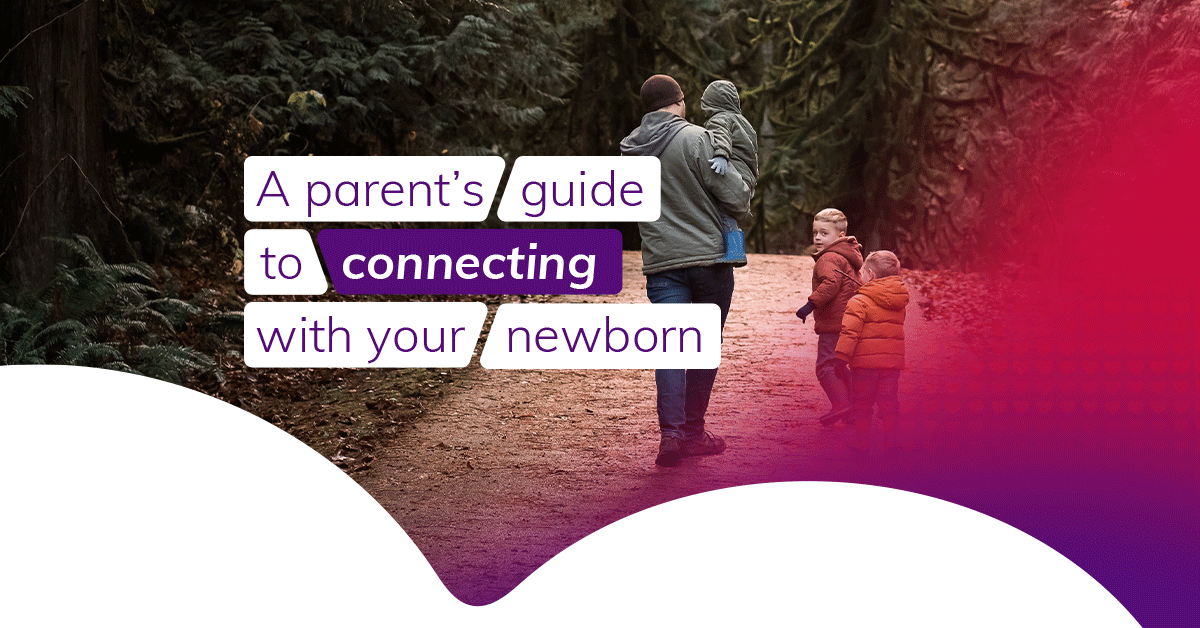

Postpartum fatigue: 5 strategies for coping as an exhausted parent
More tired than you've ever been since your baby arrived? Vhi Health Coach Dr Mou Sultana is here to talk you through the variety of ways you can help lift that postpartum fatigue.
New parenthood means a massive change to your routine, and especially your sleep cycle! Just imagine if your job had the same demands: you go to bed after an extremely busy day and, within an hour or two, your alarm’s going off again. Time for more work! No one would blame you for feeling out of sorts the next day. When that goes on for weeks or even months, it’s natural to feel in a near-constant state of agitation, crankiness, and vulnerability.
‘Postpartum fatigue’, then, is a type of chronic exhaustion that feels overwhelming. While it can last for up to 4 or 5 months, it’s important to remember that – though it may not feel like it when you’re in the thick of it – normality really will return before too long.
While you are in it, your ratio of sleep-to-activity will feel way out of proportion, impacting your capacity to function both mentally and physically. You’re running on such “low power” that a single period of sleep won’t bring you back to your normal self. You might think that nothing can restore you – but there are steps you can take to recharge and make those early months more manageable.
1. Find a rhythm with your baby
That advice to ''sleep when your baby sleeps” It’s difficult to do as an adult – we’re synced to a day-night cycle that’s tough to change. What it really means is to pay attention to your baby’s patterns and try to prioritise your time in a way that factors in self-care. Make that time a restful period for everyone, instead. In this way, you carve out natural spaces where you don’t have to hyper-focus on tasks.
2. Use your support network
This can be as simple as your partner taking over when you need a break, or a family member or friend helping with meals or washing. There’s no shame in asking for a hand, and you’ll find people eager to do their bit!
In terms of emotional support, it’s great to have a friend or someone you trust on speed dial. Not someone who’ll make you feel judged, give you advice and tell you how to do things the “right” way, but rather, someone who’ll listen to you as you pour your heart out. Talk to them whenever possible. This type of listener can be tricky to find, so don’t hesitate to reach out to a counsellor or professional.
3. Get proactive about self-care
Sometimes you mightn’t feel like getting dressed or even washing. But if you motivate yourself enough to just take a shower and put on clean clothes while someone else minds the baby, you will feel better. It might sound simple, but simple is not always easy. You’ll find it hard to detach yourself from the baby and feel that no one can mind them the way you can. That may be true, but you need to take a shower and stay away from the baby monitor for at least few minutes. Think of it this way: these moments of self-care will ensure you’re much better equipped to care for them.
4. Exercise is worth the effort
It might seem counterintuitive, but a gentle return to exercise can help with fatigue. More specifically, it will alleviate the stress or anxiety that stops you sleeping when you actually get the chance. Just keep moving and stretching as much as you can. Whatever works for you, just be mindful of stitches or any other medical procedures you’ve had done. Always double-check with your medical professional for safety.
5. Find your ideal relaxation routine
The right relaxation techniques can have a huge impact at this stage. Do everything you possibly can to feel relaxed every now and then. Taking a 15-minute bath will help you to de-stress. Or that quick refresh could come in the form of unwinding with your favourite soothing music, trying guided meditation apps, or even progressive muscle relaxation.
The latter involves contracting certain muscles (such as the upper thighs) as you breathe in for 5-10 seconds, then suddenly release the muscle tension as you exhale. You then rest for 10-20 seconds before moving on to your next nearest muscle group (the buttocks, for instance).
A sense of perspective with postpartum fatigue
If you find none of these strategies work for you, if your fatigue is such that you can’t perform your regular duties or is otherwise interfering with your emotional wellbeing and home life, don’t hesitate to seek professional help. Remember that if you are experiencing feelings of depression or anxiety for more than 2 weeks, it is important to speak with your GP about this
Please remember that it does get easier with time. And time flies superfast! Enjoy the days when you can hold that little bundle of joy in your arms and take them out for walks in their buggy. Before you know it, they’ll be rolling, crawling, running – and, yes, sleeping!
If you plan to practice meditation to help with fatigue, don't forget Vhi members can get €30 off an annual subscription to Headspace or Calm.
This content is for information purposes only and is not intended or implied to be a substitute for professional medical advice, diagnosis or treatment. Always seek advice from your GP or an appropriate medical professional if you have concerns about your health, or before commencing a new healthcare regime. If you believe that you are experiencing a medical emergency call 999 / 112 or seek emergency assistance immediately.
Meet our Vhi Verified Expert

Dr Mou Sultana
Vhi Health Coach
Chartered Psychologist and Psychotherapist
.jpg/_jcr_content/renditions/cq5dam.web.1280.1280.jpeg?ch_ck=1699631419000)


